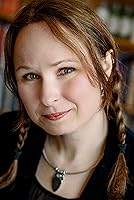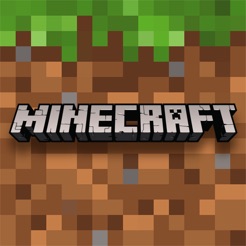Anyone who
knows me well knows that I am a sucker for romance. Whether it’s movies or
books, I’m all about that sweet moment when you see that spark of attraction
between two characters, or when thwarted lovers finally embrace. This is
probably why, when I have time to read just for fun, I usually choose young
adult books, which almost always have a love story. Middle grade novels, on the
other hand, are not thought of as being romantic, at least not in the sense
that you might find in YA and adult books. And yet, if you look more closely,
relationship romance is alive and well in the middle grade novel. It just looks
and behaves differently.
The
question was raised to me this past school year, when a fifth-grade girl
approached me looking for the romance books. I told her that in middle grade there
isn’t really a romance category, but there are books that have a hint of
romance in them. I was able to find a few for her off the top of my head –
Wendelin Van Draanen’s Flipped,
Shannon Hale’s Princess Academy, the
classic Witch of Blackbird Pond – but
my curiosity was piqued and I wanted to see what else I could find for her.
Digging a
little deeper, I asked myself, what is it that sets a middle grade “love story”
apart from the more traditional form we see in books for older readers? Not
only is the physicality greatly reduced (mostly crushes, hand-holding and the
occasional chaste kiss), but the build-up is different. Most middle grade
romances are derived from friendships. We don’t see the instant, chemical
attraction you might find in a YA book. Love in tween stories takes time to
build up, often over the course of several books. Sometimes the affection grows
naturally from a long-time friendship, such as that between Miri and Peder in Princess Academy. It’s only at the end
of the book that they acknowledge the affection between them, and their
relationship continues to develop, ever so slowly, through two subsequent
books.
Another
device you might find is that the romantic element of the book involves not the
main character(s), but side characters. For example, in Dianne Salerni’s 8th Day series, the love
story involves the MC’s guardian. This sub-plot is engaging, and while it may
not be essential, it adds interest and depth to the story. Also interesting to note is that Dianne originally wrote The 8th Day as a YA novel, but later revised it for middle grade, and for that reason, she actually had to tone down the romance significantly.
Love in the
middle grade novel is hardly a new-fangled thing. In addition to the
afore-mentioned Anne of Green Gables
and Witch of Blackbird Pond, there
are other, decades-old books that involve romantic relationships. In The Westing Game, Turtle has a crush on
Doug Hoo through most of the book, while her future husband, Theo, is mesmerized
by her sister, Angela. Calvin and Meg hold hands and awkwardly kiss in A Wrinkle in Time. If you’ve read the
further books, (spoiler alert if you haven’t!) you know that they end up
married with children. The Little House
books eventually have Laura being courted by and married to a local farmer.
So, is
romance appropriate in children’s books? I suppose some parents would tell you that unequivocally, NO, it's not. But if handled sensitively and carefully, romantic love,
which is a natural part of life and something that older children especially are curious
about, can be included in books for kids. What follows is a list of books that I
came up with in my research. If you can think of others, or you
want to share any of your favorites, please feel free to comment. Hope you
“love” these books!
Tuck Everlasting,
by Natalie Babbitt
The Frog Princess,
by E.D. Baker
The Penderwick’s series, by Jeanne Birdsall
Doll Bones, by
Holly Black
The Underland
Chronicles (Gregor the Overlander),
by Suzanne Collins
The City of Ember
series, by Jeanne DuPrau
The Goose Girl
series, by Shannon Hale
Princess Academy
series, by Shannon Hale
A Wrinkle in Time
series, by Madeleine L’Engle
Ella Enchanted, by
Gail Carson Levine
Anne of Green Gables
series, by L.M. Montgomery
Agnes Parker, Keeping
Cool in Middle School, by Kathleen O’Dell
His Dark Materials Trilogy
(Golden Compass), by Philip Pullman
Magnus Chase
series, by Rick Riordan
The Harry Potter
series, by J.K. Rowling
The 8th Day
series, by Dianne Salerni
The Witch of Blackbird
Pond, by Elizabeth George Speare
Stargirl, by Jerry
Spinelli
When You Reach Me,
by Rebecca Stead
Emma Jean Lazarus Fell
in Love, by Lauren Tarshis
The One Safe Place,
by Tania Unsworth
Flipped, by
Wendelin VanDraanen














